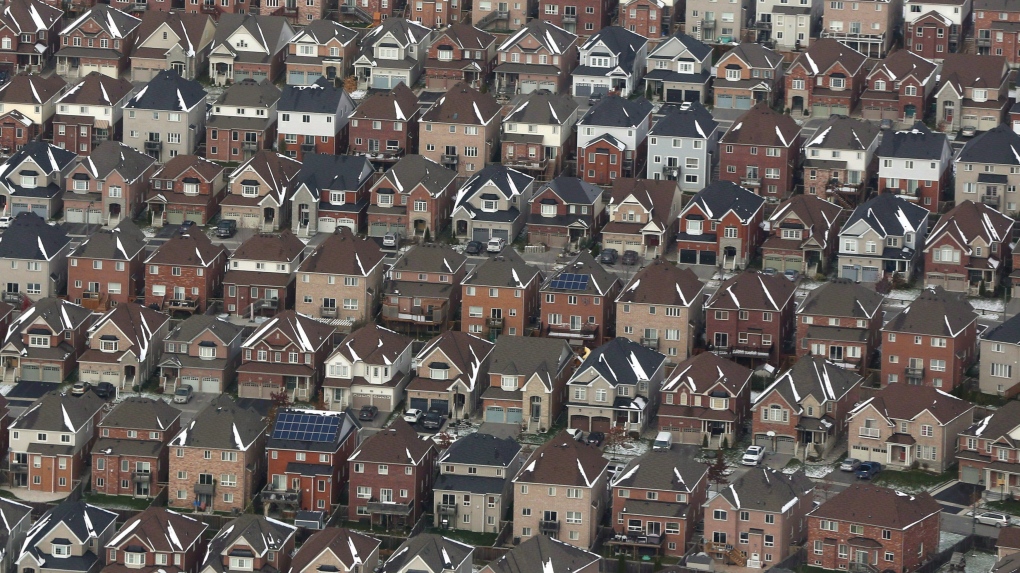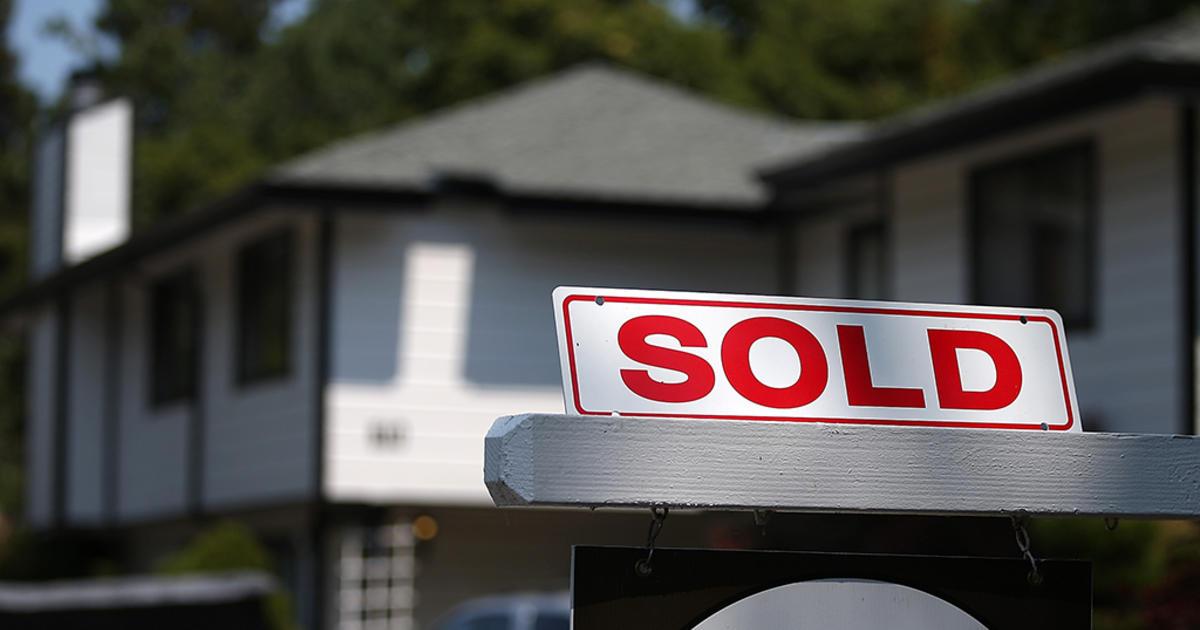Real eState
Who are Canada’s real estate investors, and where are they buying?
|
|


A new report by Statistics Canada reveals insights into Canada’s real estate investors.
With demographic statistics published in the report titled “Housing Statistics in Canada,” these insights paint a picture of investors throughout Ontario, British Columbia, Manitoba, Nova Scotia, and New Brunswick for the 2020 reference year, highlighting each demographics’ role in the housing market.
Here are some key takeaways.
PROVINCE INVESTOR DIFFERENCES
Statistics Canada notes that Nova Scotia, New Brunswick and British Columbia represented the highest volume of out-of-province and non-resident investors in 2020.
Nova Scotia, for instance, had 3.8 per cent of their investors deriving from outside of the province in 2020. Similarly, New Brunswick had 3.0 per cent, while British Columbia had 2.7 per cent of out-of-province investors.
Leah Zlatkin, a mortgage broker and corporate strategist with Mortgage Outlet Inc., notes that the data, emerging before recent interest rate hikes and developments in inflation, represents a very different housing market.
“A lot has changed” since 2020, she told CTVNews.ca in a phone interview on Wednesday. “I don’t know if we can really base this on the profile of existing investors.”
But Zlatkin also explained that 2020 trends reflecting out-out-province investors in the East Coast remain relevant to the current housing market.
“For many Ontario investors who want to get into the market with a second or third home in the course of the last two or three years, the East Coast has been really cheap in terms of property values,” she said. “So it’s been a really good opportunity to buy properties out there and still be renting them for the same cost as properties in the [Greater Toronto Area].”
The data revealed that, compared with other types of investors, out-of-province investors earned the highest average incomes in all five provinces assessed. In most provinces, however, investors who owned vacant land in addition to a primary residence had an average annual income that was similar to people who were not investing in real estate.
In New Brunswick, 1.6 per cent of in-province investors owned three or more properties. This was one end of the housing stock range, which saw 2.9 per cent of Ontario investors owning three or more properties in their province.
“For Nova Scotia and New Brunswick [the volume of out-of-province investors] makes a lot of sense,” Zlatkin said. “Property values in Nova Scotia are so much less. You could rent out the properties for a good amount… You could buy a rental property in Nova Scotia or New Brunswick for two, three hundred thousand dollars in the last two years. And you could rent that same property out for two thousand dollars [per month].”
In Ontario, Zlatkin explained, to buy a property that you could rent out for $2,000 you would need to pay upwards of $500,000 or $600,000. “When you look at how much is required and what kind of mortgage you’d need to qualify for, it makes a lot more sense to buy out east.”
Zlatkin also explained that managing properties when you live out of the province would be much more difficult. However, “if it’s a smaller value property, the risk is not as high.”
IMMIGRATION INVESTORS COMPARED TO CANADIAN-BORN INVESTORS
Statistics Canada also reported that established immigrants – meaning those who arrived in Canada before 2010 – were more likely to be investors than their proportion in the population. British Columbia, for instance, found immigrant investors carried an average property value totalling $2,200,000. This compares to Canadian-born real estate investors who had an average assessed value standing at $1,610,000.
Similarly, in Ontario, the average assessed value for immigrant investors was $1,290,000 and $890,000 for Canadian-born investors.
According to Statistics Canada, a major reason for these value discrepancies derived from the fact that immigrant investors were “more likely to own a primary residence in a larger census metropolitan area.” In highly populated cities, property assessment values are “generally higher compared to other parts of the provinces,” Statistics Canada explained in the report.
Zlatkin believes a major factor is the competitive process of immigration in the country, which leans towards welcoming newcomers with high education and high-paying job eligibility.
“When you look at how we allow immigration to happen in Canada, most people who are immigrating into Canada are extremely well educated,” she said. “They come in with a lot of credentials. People [who immigrated] are [often] very employable if they don’t already have employment. They may also come from situations where they were previously doing well in their home country and they may have family members who are still doing well in their home country.”
Zlatkin explained that there is a lot of asset opportunity for those with an existing income or those who have financial backing, either from an incoming job or from family.
INDIVIDUAL INCOME AVERAGES AND INVESTOR AGES
The report also found that disparity in incomes was more significant in B.C., and Ontario.
In B.C., Canadian-born investors had an average individual income of $105,000 in 2020, with immigrant investors carrying an average individual income of $80,000.
The same average income ($80,000) was traced to immigrant investors in Ontario, where as the average individual income for Canadian-born investors in the province was $100,000.
Notably, Nova Scotia and New Brunswick were the only provinces out of the five that showed immigrant investor incomes higher than the individual incomes of Canadian-born investors.
In Nova Scotia, immigrant investors earned an average annual income of $75,000, while Canadian-born investors earned $65,000. In New Brunswick, the average individual income of immigrant investors stood at $65,000 in 2020, while Canadian-born investors earned an average of $60,000.
“When you look at the average income here, most of these people wouldn’t qualify for two or three homes,” Zlatkin said, explaining key differences with the housing market of 2020.
Along with showing that residents aged 55 and older represented a “higher proportion of investors than their share of the provincial populations,” the report explained that Canadians 35 and younger averaged 5 per cent of total property investors in 2020.
Zlatkin called this “shocking.”
“I’m shocked because most people under 35 don’t have enough income to qualify for these mortgages,” she said.
Zlatkin mentioned that this could be a result of generational wealth, financial cushioning from families, and shifts in lifestyle focus for younger investors.
Zlatkin said this trend could reflect an increased demand for millennials to have better work life balance – a luxury afforded to real estate investors who rent out properties and only have to maintain them in order to incur wealth.
To rent out multiple properties you actually “could acquire quite a bit of wealth and it’s long-lasting throughout your entire lifetime,” she said.
“For a millennial who has the money or has generational wealth it makes sense that young people are incredibly incented to buy.”
With files from CTVNews.ca’s Jesse Tahirali





Real eState
Former HGTV star from Los Gatos sentenced in $10M real estate fraud case – CBS San Francisco


LOS GATOS – A Los Gatos man who starred in a real estate reality show was sentenced to jail and ordered to pay back nearly $10 million to his victims after being convicted of real estate fraud, prosecutors said Tuesday.
According to Santa Clara County District Attorney Jeff Rosen’s office, 58-year-old Charles “Todd” Hill received a four-year sentence. Hill starred in the HGTV show “Flip It to Win It“, which featured teams buying dilapidated homes and fixing them, before selling them for a profit.
The show aired in 2014.
Prosecutors said Hill was convicted in Sep. 2023 after admitting to grand theft with aggravated white-collar enhancements for committing real estate and financial fraud against 11 victims. Hill was indicted in 2019 following an investigation by the DA’s office.
“Some see the huge amount of money in Silicon Valley real estate as a business opportunity,” Rosen said in a statement. “Others, unfortunately, see it as a criminal opportunity – and we will hold those people strictly accountable.”
According to the DA’s office, Hill engaged in “multiple fraud schemes”, with some scams dating back before the HGTV show.
Prosecutors said in one instance, he diverted construction money for his personal use. In another, Hill created a Ponzi scheme by taking money intended to buy homes from an investor and spending it on a lavish lifestyle instead. He hid the theft by creating false balance sheets and used fraudulent information to obtain loans, according to prosecutors.
In a third case, prosecutors said an investor who provided $250,000 to remodel a home toured the property, only finding it to be a “burnt down shell” with no work performed.
Hill had used the money on a rented apartment in San Francisco along with spending on hotels, vacations and luxury cars, prosecutors said.
In addition to jail time, Hill was ordered to pay back $9,402,678.43 in restitution and serve 10 years probation. Hill has been remanded into custody, the DA’s office announced.
Real eState
Unlocking success in real estate with Glenn Zdrill – paNOW
Since Zdrill is well versed in all aspects of the real estate industry, you’ll have answers to questions before you even think to ask them – like, “How does mortgage loan insurance work?” or “How much will I need for closing costs?”
“Closing costs typically range from 1.5 to four per cent of the home’s purchase price and include things like legal and administrative fees, your home inspection, appraisal fees and more. So, you need to budget for this. Its my job to make sure you’re asking all of the right questions and I’m giving you the information you need to make informed decisions.”
As a licensed realtor with RE/MAX P.A. Realty, Zdrill has the option to show any property on the Multiple Listing Service (MLS) database. He prides himself on understanding the market and current trends including property prices and the community.
“Prince Albert continues to have a lot of things happening with the construction of the new hospital, swimming pool and rinks. When I got into real estate over a year ago, I believed Prince Albert was a community on the verge of a boom and we’re starting to see that come to fruition.”
Selling or buying a home involves a multitude of moving parts, from negotiations to closing procedures and Zdrill is committed to helping his clients navigate the complexities with confidence.
Contact Glenn Zdrill through the RE/MAX P.A. Realty office at 2370 – Second Ave. W or give him a call at 306-961-5767.
*Please note, this article is not intended to solicit any properties already listed for sale.
—
**This content was created by paNOW’s commercial content division.
Real eState
Ontario regulator freezes assets of unlicensed builder
|
|
The extraordinary measures Ontario’s new homes regulator is taking to deal with a Toronto builder with a history of sanctions highlight the challenge posed by unlicensed builders.
On March 19, the Home Construction Regulatory Authority (HCRA) froze the assets of Albion Building Consultant Inc. Court documents said that an investigation found evidence that the company took money for as many as 53 separate homes in Toronto it did not have the proper licences to build or sell.
The number of homes allegedly illegally built by Albion is several times larger than previously believed, which the HCRA said prompted it to invoke rarely used powers.
The freezing of assets was not punitive, but “to hold any purchaser funds in trust … to prohibit [Albion] from transferring any assets [and] to preserve the deposits for the benefit of homebuyers,” said Wendy Moir, the HCRA’s chief executive officer and registrar.
Ontario’s new home regulations are split between two delegated authorities, HCRA and Tarion. HCRA, which was launched in 2021, licenses builders and polices their conduct. Tarion approves the number of homes a builder can enroll in its home warranty program, an insurance pool that protects new home deposits and serves as a backstop for builder defect complaints.
If homes are built or sold without licences, they cannot be enrolled in the Tarion program, limiting the buyers’ recourse in the event of defaults by the builder.
“The HCRA is taking appropriate action to protect the public and send a clear message to the industry that those who act unlawfully or unethically will be held accountable,” said Ms. Moir.
The principals of Albion – Zamal Hossain and his wife Farida Haque – have already been convicted four times for regulatory offences related to 16 homes built without licences between 2016 and 2022. But in a search warrant application the HCRA filed on Feb. 20 with the Ontario Court of Justice, the agency outlines dozens of other new-build homes Albion is alleged to have sold or constructed. Those allegations have yet to be proven in court.
The warrant is only the second one the relatively new agency has served. It allowed investigators to comb through Albion’s office at 3028 Danforth Ave. in Toronto for any records of contracts and agreements with buyers about the homes, contracts with trades and subtrades, contact information for the new home purchasers and any correspondence between Albion and purchasers about the new homes.
“We got a lot of information from them – a van full of documents,” said Ms. Moir. “We have hundreds of documents to go through,” she said. “This is one of our largest investigations.”
Albion’s business has been to tear down a single detached home, split the lot and then construct two new homes on the old site. The HCRA warrant suggests the majority of the 53 suspected unlicensed homes are lot-splits located mainly in Scarborough. It’s unclear as yet how many homes the company actually completed.
In the past, Tarion extended a licence to build homes to Mr. Hossain and Albion, but limited the number of new homes he was allowed to enroll into its insurance program.
The evidence HCRA submitted for the search warrant suggests that the actual number of unlicensed homes built by Albion was several times higher than Mr. Hossain admitted.
Mr. Hossain didn’t respond to requests for comment for this story, but in 2023 he offered this comment to The Globe on his previous convictions: “Yes I broke the law. I did the house without the Tarion [new home warranty]. … I didn’t murder anybody.”
According to Ms. Moir, there’s no clear tally of how many unlicensed builders there are in the province. She notes that it is not illegal to build your own home without a licence. But if you hire a contractor to do it, they must be licensed.
“We’ve seen an 80-per-cent increase in illegal building complaints since last year,” she said. “I don’t think it’s more illegal building, we think it’s more awareness.”
Neil Rodgers, Interim CEO of the Ontario Home Builders Association, said the Albion case puts a spotlight on the need for regulatory fixes to tackle illegal vending where an unlicensed builder takes deposits to build homes they aren’t entitled to sell or build.
“There has to be a pro-active regulatory regime,” said Mr. Rodgers. “There needs to be a system put in place that allows for what I’m going to call early warning tracking, whereby purchasers or their agents or their solicitors could register their agreements of purchase and sale with HCRA or Tarion. If there’s a pattern that’s emerging it gives the regulator an opportunity to intervene much faster.”
Mr. Rodgers likens this requirement on buyers to share details of their agreement of purchase and sale’s with HCRA or another agency as similar to mailing a warranty card for an electronic appliance, and says he’s calling on the province for consultations on changes to the requirements.
Karen Somerville of the consumer lobby group Canadians for Properly Built Homes (CPBH) doesn’t agree the burden should be on consumers to identify unlicensed builders, and points to a different screening where there’s already been pilot programs in the past: construction permitting.
“CPBH proposes that the municipality has the responsibility to notify HCRA given the information available in the building permit application,” Ms. Somerville said. “This would result in government organizations working together using information they already have to identify unlicensed builders.”





-



 Sports22 hours ago
Sports22 hours agoTeam Canada’s Olympics looks designed by Lululemon
-
News23 hours ago
Richard Chevolleau Short Film “Marvelous Marvin” Set to go to Camera
-
Business21 hours ago
Firefighters battle wildfire near Edson, Alta., after natural gas line rupture – CBC.ca
-



 Tech14 hours ago
Tech14 hours agoiPhone 15 Pro Desperado Mafia model launched at over ₹6.5 lakh- All details about this luxury iPhone from Caviar – HT Tech
-



 Investment24 hours ago
Investment24 hours agoStephen Poloz will lead push to boost domestic investment by Canadian pension funds
-



 Sports14 hours ago
Sports14 hours agoLululemon unveils Canada's official Olympic kit for the Paris games – National Post
-
News24 hours ago
Federal budget 2024: Some of the winners and losers
-



 Investment22 hours ago
Investment22 hours agoWall Street bosses cheer investment banking gains but stay cautious





